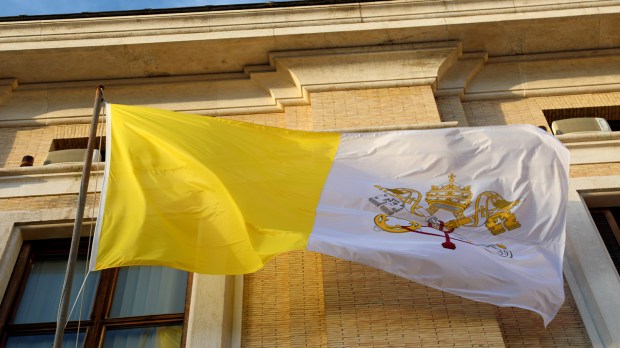A diplomatic note from the Holy See was sent to the Italian government on June 17, 2021, expressing concern about a draft law which includes provisions to combat homophobia. The revelation of this note in the press has aroused a strong controversy in Italy. Here’s an explanation.
What is the “Zan project”?
The bill is named after Alessandro Zan, Italian Democratic Party lawmaker and member of the LGBT community. The bill aims to “prevent and combat discrimination and violence based on sex, gender, sexual orientation, gender identity and disability.”
It also calls for the establishment of a day against “homophobia, lesbophobia, biphobia and transphobia.” In November 2020, the bill passed the lower house of parliament. It’s currently being examined by the Justice Commission of the Italian Senate.
What is the position of the Italian Church regarding this project?
“Homophobia: no need for a new law,” wrote the president of the Italian Bishops’ Conference, Cardinal Gualtiero Bassetti, in June 2020, after learning about the draft in question. He expressed the concern that new legislation “would risk opening the way to abuses destructive of liberty,” without denying that “discrimination —including that based on sexual orientation— is a violation of human dignity.”
Last May, he qualified this statement somewhat. “If a specific law against homophobia is considered useful, that’s fine,” he said, but he added that it should be clearer. “As it stands today, it is a text that lends itself to various interpretations and can lead to other issues that have nothing to do with homophobia, insults or violence.”
What are the revelations of the Corriere della Sera?
On June 22, Corriere della Sera revealed that the Holy See had sent a “verbal note” to the Italian Embassy to the Holy See on June 17. This was done by Archbishop Paul Richard Gallagher, Secretary for Relations with States. According to the Italian daily, the note expresses concern about certain aspects of the law currently being examined by the Senate—elements that “reduce the freedom guaranteed to the Catholic Church” by the revision of the Concordat in 1984.
Beyond the specific issue of the organization of the National Day against Homophobia in private Catholic schools, Corriere explains that the Vatican is more widely concerned about an attack on the “freedom of thought” of the Catholic community. For the newspaper, the Church fears that the approval of the law could lead to legal danger for Catholics.
Did the Vatican really interfere?
On the day of the revelations, L’Osservatore Romano, the official newspaper of the Holy See, included an insert confirming that a note from the Secretariat of State had indeed been sent to the Italian ambassador to the Holy See on June 17. The note explained that it was a request for a reformulation of the bill to ensure proper respect for the Concordat revised in 1984. The project “risks interfering, among other things, with the right of Catholics and their associations and organizations to ‘full freedom of communion and manifestation of thought […],’” as provided for in Article 2 of the Concordat.
No doubt in a similar effort to educate, Vatican News, the Holy See’s other media outlet, also carried an interview with a legal expert detailing the reasons why the current bill is problematic.
Why is this diplomatic note creating controversy?
“Never before has the Church intervened in the process of approving an Italian law,” says Corriere della Sera, which asserts that this is an act “without precedent” in the history of relations between the two states, or at least “without public precedent.”
“There can be no foreign interference in the prerogatives of a sovereign parliament,” reacted the lawmaker Alessandro Zan on his Twitter account, adding that the draft had already been approved by a branch of Parliament “with a large majority” and that the process was not yet complete. For him, the “text does not restrict in any way the freedom of expression, nor religious freedom. And it respects the autonomy of all schools.”
In the Italian political class, some cried scandal while others stressed the right of the Church to call for the proper respect of the Concordat.
On the Vatican side, an internal source acknowledged a certain embarrassment caused by the disclosure of this diplomatic note, which should have remained confidential.
However, there is no intention to interfere. In the interview published by Vatican News, Cesare Mirabelli explains that the purpose of the note is to “point out” the fact that certain aspects of the law could be contrary to the spirit of the Concordat. Without ever contesting the legitimacy of the Italian state to protect certain categories of people, he explains that the free expression of Catholic convictions could be threatened by this text.

